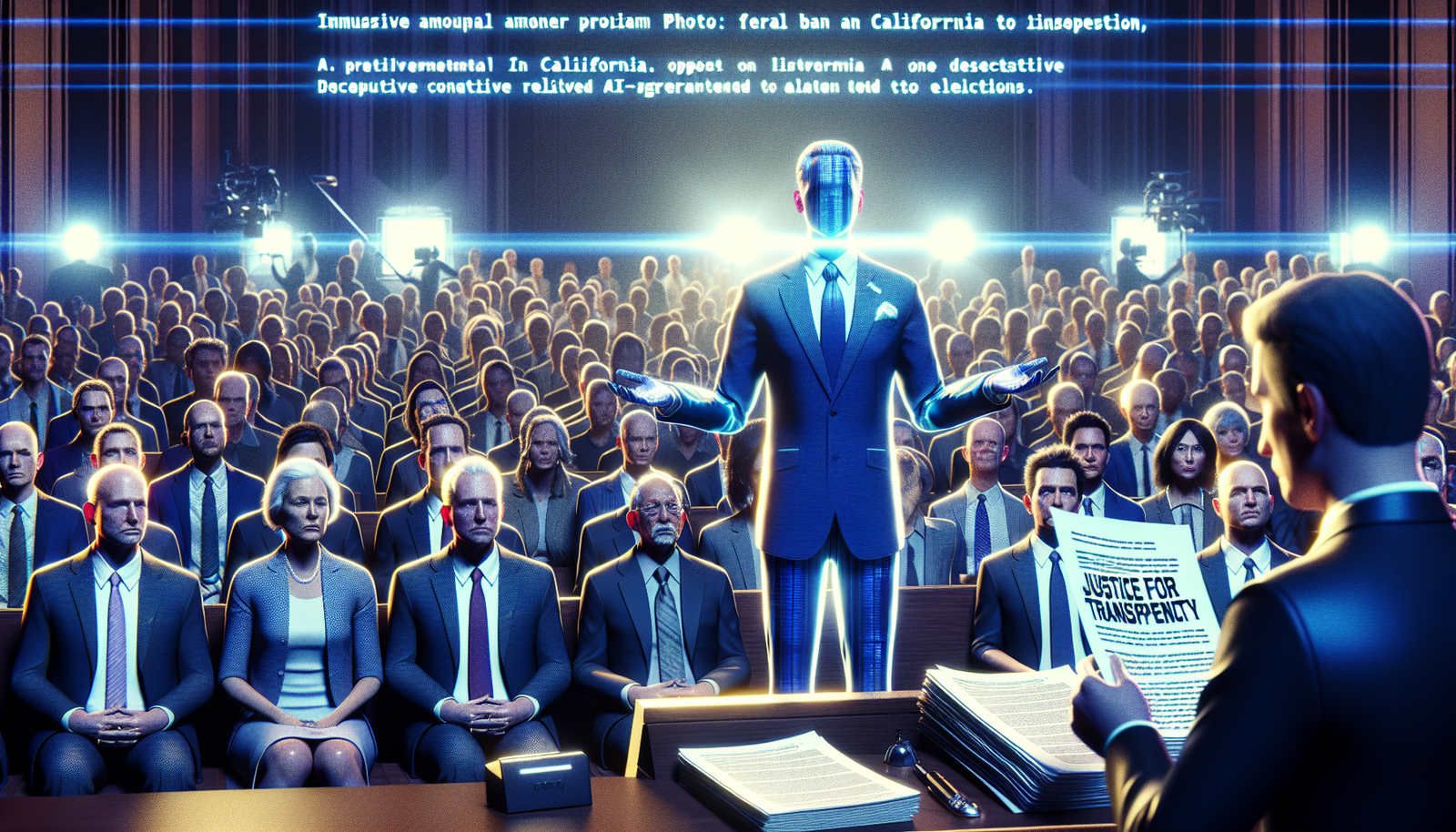Case X v. California
Company X, formerly known as Twitter, has filed a lawsuit against the state of California. This action aims to challenge the legality of law AB 2655, which prohibits the dissemination of misleading electoral content generated by artificial intelligence. The lawsuit was initiated in a federal court in Sacramento.
Legislative context of law AB 2655
On September 17, the California governor Gavin Newsom signed the law, called the Defending Democracy from Deepfake Deception Act of 2024. This legislation establishes standards of accountability regarding the use of false political speech created by AI programs, particularly around election times. It prohibits the dissemination of “misleading audio or visual content about a candidate” in the sixty days preceding the election date.
Arguments of X against the law
X contests this legislation, arguing that it constitutes an infringement on freedom of speech protected by the First Amendment of the U.S. Constitution. The complaint asserts that this text introduces unacceptable censorship of political speech by creating a fear of potential legal repercussions for the dissemination of critical content about candidates.
Implications for freedom of speech
The leadership of X argues that the law could deter users from expressing opinions on political issues, thus compromising public debate. The argument put forward by X is based on the idea that freedom of speech must include tolerance for potentially erroneous speech, especially when it pertains to political criticism.
Rapid development of AI legislation in California
AB 2655 is part of a broader legislative framework aimed at regulating the use of artificial intelligence. Other measures recently adopted by California address deepfakes and misleading content, including laws regarding falsely explicit videos. The day after the law was signed, a federal judge granted a temporary injunction against the enforcement of this legislation.
Concerns regarding AI
California has become a stimulating debate ground on issues associated with AI. Concerns related to the use of AI in cinema and television, as well as other sectors, have triggered movements such as the SAG-AFTRA strike in 2023. This strike led to agreements designed to protect actors’ rights against the exploitation of their image without consent.
Creation of legal precedents
The lawsuit of X could establish significant precedents concerning the use of AI in political communication. The question of how far regulation can go without infringing on constitutional rights is drawing increased attention from legal and technology experts.
Economic and social implications
The repercussions of this case go beyond mere legal debate. Legislators, tech companies, and society are questioning the limits of innovation in the face of democratic security. The survival of free political speech is at stake at a time when content manipulation technologies like deepfakes are becoming increasingly sophisticated.
Frequently Asked Questions about the case of X v. California regarding the prohibition of misleading electoral content generated by AI
What are the reasons for X filing a lawsuit against California?
X challenges law AB 2655, which aims to prohibit the dissemination of misleading audio or visual media generated by AI regarding electoral candidates during the 60 days preceding an election.
How does law AB 2655 affect freedom of speech according to X?
X argues that this law hinders freedom of speech, claiming that the First Amendment protects even speech that may be potentially misleading in the context of political criticism.
What are the implications of the law on political publications and social media?
The law imposes strict restrictions on content that can be shared on social media platforms and political publications, thus limiting users’ ability to post criticisms or comments about candidates.
What are the consequences of a ruling in favor of X?
If X wins its case, this could nullify law AB 2655, allowing for a return to greater freedom in the publication of AI-generated political content, including content that may be considered misleading.
What type of content is specifically targeted by this law regarding AI?
The law specifically targets audio or visual content that is deemed “materially misleading” in the 60 days leading up to an election, including deepfakes and other manipulations generated by AI.
What has been the response of California authorities to this lawsuit?
California authorities, defending the law, argue that it is necessary to protect the integrity of elections and reduce the spread of misinformation related to candidates.
What protections does this law offer for election candidates?
The law is designed to protect candidates against the dissemination of misleading content that could distort public opinion or unduly influence electoral outcomes.
Have there been recent legal developments regarding this law?
Yes, a federal judge issued a preliminary injunction against this law shortly after its enactment, highlighting concerns regarding freedom of speech and the potential abuse of the moderation measures imposed by the law.
What are the views of legal experts on this lawsuit?
Legal experts are divided; some believe it could establish important precedents regarding the use of AI in political communications, while others fear consequences for regulating misinformation.
What are the next steps in the judicial process for this case?
The trial will continue with hearings to assess the arguments of both parties, and a final decision may take several months to arrive.






